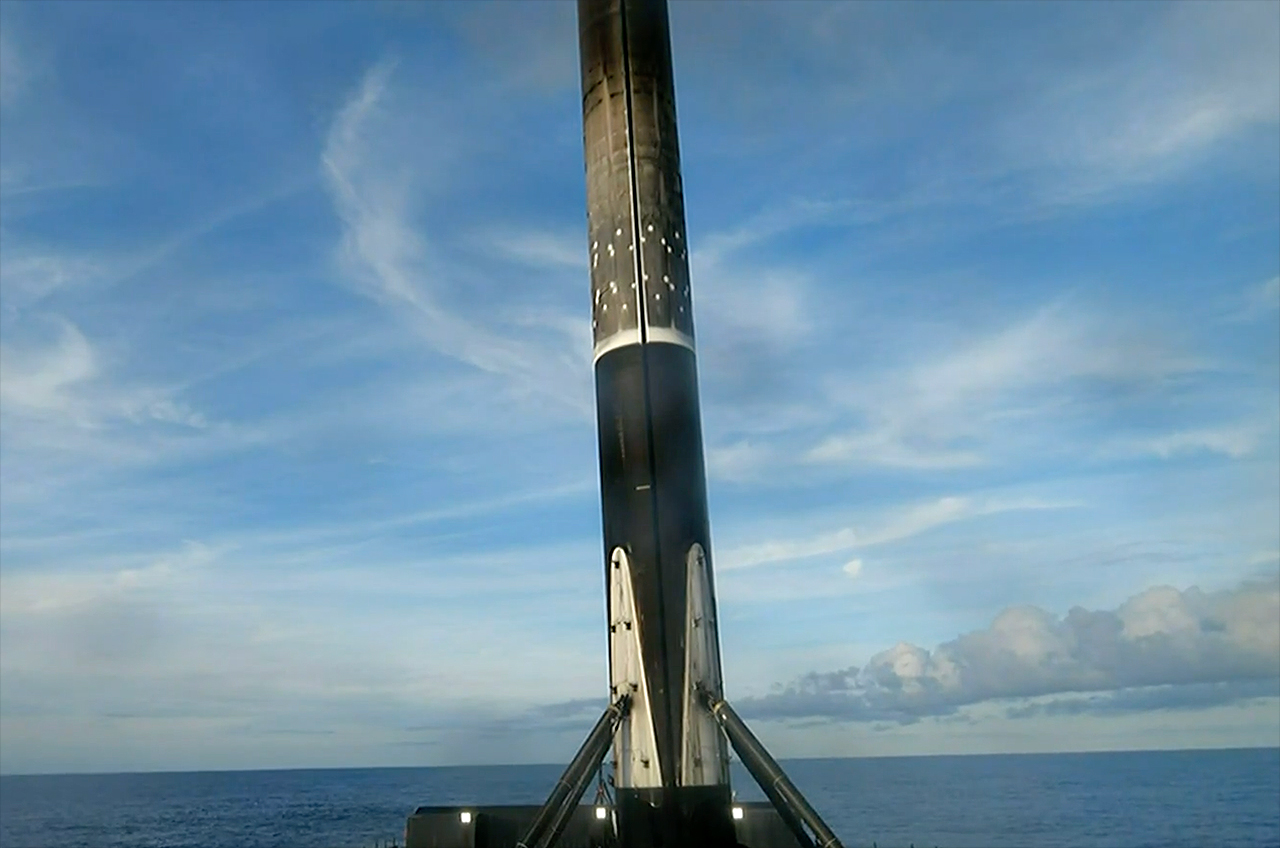SpaceX launches O3b mPOWER communication satellites on its 84th mission of 2023
Launch of the SES O3b mPOWER mission was at 4:08 p.m. ET on Sunday (Nov. 12).
SpaceX launched the SES O3b mPOWER mission on Sunday (Nov. 12), a flight that placed two communication satellites into medium Earth orbit (MEO).
The Falcon 9 rocket ferrying these satellites lifted off from Cape Canaveral Space Force Station in Florida at 4:08 p.m. EST (2108 GMT).
Related: SpaceX launches its 29th cargo mission to the International Space Station

The Falcon 9's first stage came back to Earth and made a vertical touchdown on the company's drone ship about 8.5 minutes after liftoff. The ship, known as "A Shortfall of Gravitas," was waiting nearby in the Atlantic Ocean; the rocket's upper stage will not be recovered, as is standard for Falcon 9 flights.
Two hours after liftoff, the rocket's upper stage deployed the first of the two satellites into medium Earth orbit (MEO) some 5,000 miles (8,000 km) above our planet. Seven minutes later, the second satellite was deployed.
The two Boeing-built spacecraft that were aboard the flight will expand the O3b constellation of communication satellites operated by provider SES S.A. of Luxembourg. Once the six-satellite constellation is complete, it is expected to provide high-speed connectivity to a variety of customers in both government and private industries beginning in late 2023.
The Falcon 9 booster on the flight flew on eight previous missions, five of which were devoted to building out Starlink, SpaceX's megaconstellation of broadband internet satellites. Starlink currently consists of more than 5,000 operational satellites.
Get the Space.com Newsletter
Breaking space news, the latest updates on rocket launches, skywatching events and more!
The SES O3b mPOWER mission marked SpaceX's 84th launch of the year.
Join our Space Forums to keep talking space on the latest missions, night sky and more! And if you have a news tip, correction or comment, let us know at: community@space.com.

Brett is curious about emerging aerospace technologies, alternative launch concepts, military space developments and uncrewed aircraft systems. Brett's work has appeared on Scientific American, The War Zone, Popular Science, the History Channel, Science Discovery and more. Brett has English degrees from Clemson University and the University of North Carolina at Charlotte. In his free time, Brett enjoys skywatching throughout the dark skies of the Appalachian mountains.









